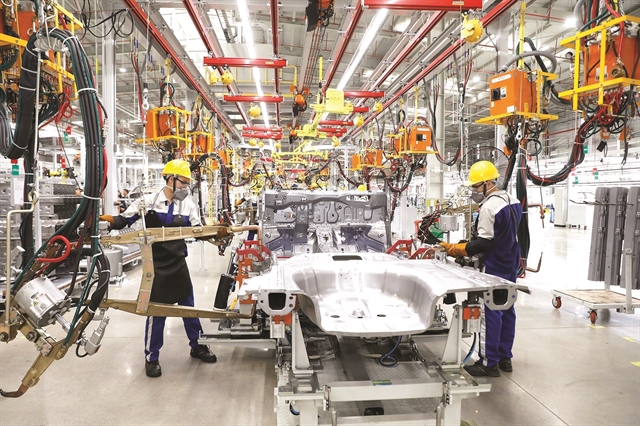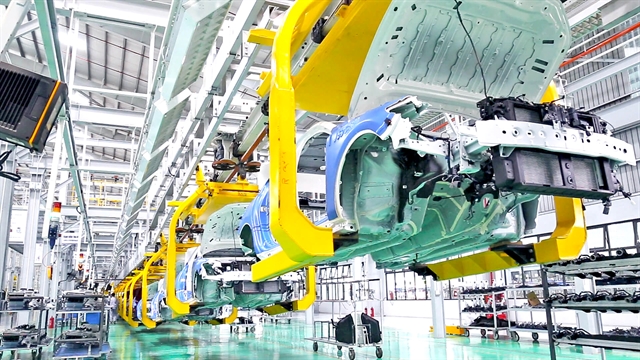 Economy
Economy

 |
| An assembly line in Truong Hai Auto Corporation (THACO) in Quảng Nam Province. — Photo courtesy of Thaco |
HÀ NỘI — The Việt Nam car industry is facing a significant downturn in sales and high inventory levels, despite government efforts to provide support through tax and fee reductions, according to auto experts.
The local market saw a 25 per cent decline in sales in 2023 compared to 2022, with only around 370,000 vehicles sold. In early 2024, sales have continued to fall, with members of the Việt Nam Automobile Manufacturers Association (VAMA)’s reporting that sales were down 50 per cent in January, while inventory levels are estimated to be over 70,000 vehicles, mainly still over from 2023.
Experts attributed factors to the downturn including the economic recession and rising inflation, exchange rates and interest rates that have impacted consumer spending on high-value items like cars. In addition, the COVID-19 pandemic still continues to weigh on the industry's recovery.
The Government has been actively involved in supporting the industry through various policies and initiatives, including a 50 per cent reduction in registration fees for domestically produced and assembled cars.
This has helped stimulate demand and support manufacturers and distributors in selling their inventory, however there are still significant challenges to address and it has a big impact on the Government budget.
The localisation rate of cars with fewer than nine seats has only reached 12-20 per cent, falling short of the 2020 target of 30-40 per cent. This indicates the industry has struggled to boost local production and sourcing of parts.
The export target of 5,000 vehicles by 2020 has only been partially met, with exports reaching just 1,000 vehicles. This suggests the industry has not yet fully tapped into export opportunities.
Solutions needed
The half price vehicle registration fee for domestically produced and assembled cars began in December 2021.
Economic expert Đinh Trọng Thịnh said that the 50 per cent cut was implemented for a third time in 2023.
The revenue shortfall is estimated to be VNĐ7,000-VNĐ9,000 trillion (US$280-360 million), which is considered relatively large.
However, Thịnh noted that this registration fee reduction has also led to a significant increase in car sales - about 25 per cent in the past and 45 per cent more recently.
The expert believes it may be worth considering extending the incentive through 2024 as well, as domestic automakers are still facing challenges and need support to compete with imports.
Economist Ngô Trí Long said businesses and consumers both welcomed the policy of reducing registration fees for domestically produced cars, as it benefited both producers and consumers.
However, the Ministry of Finance needed to carefully consider the impact on budget revenue when implementing such solutions.
It was important to research whether reducing registration fees violates any international commitments and whether the traffic infrastructure can handle the potential increase in car ownership, said Long. — VNS




